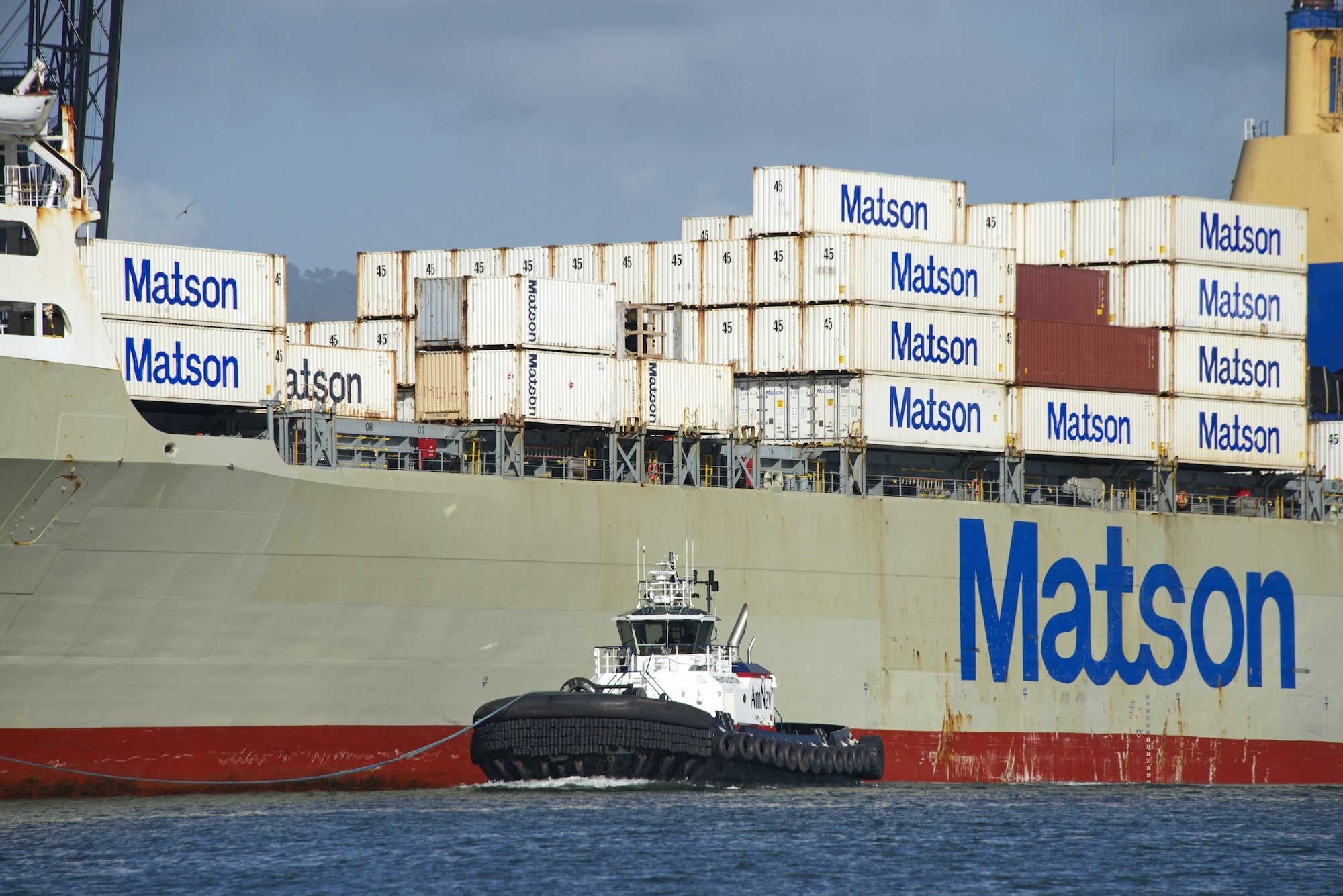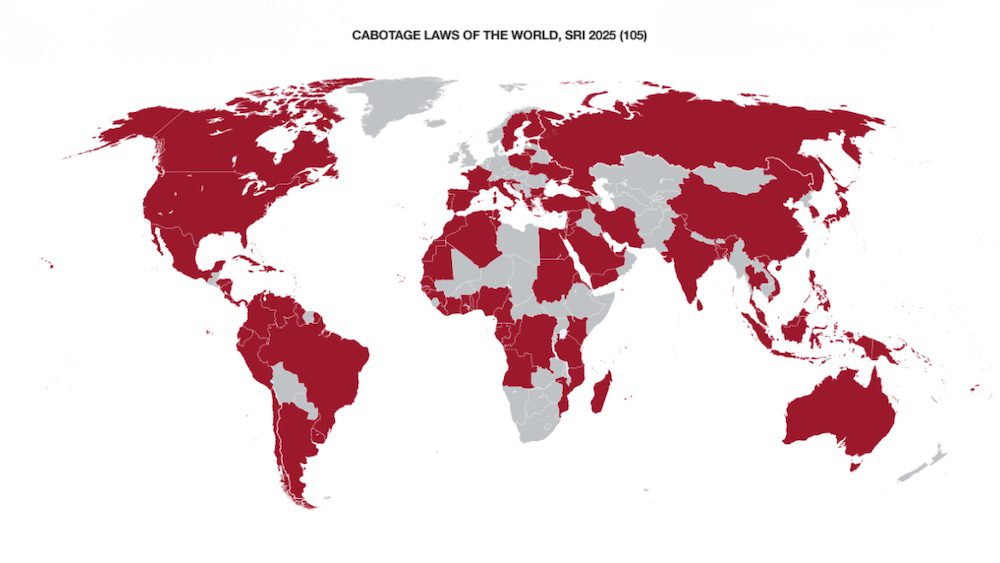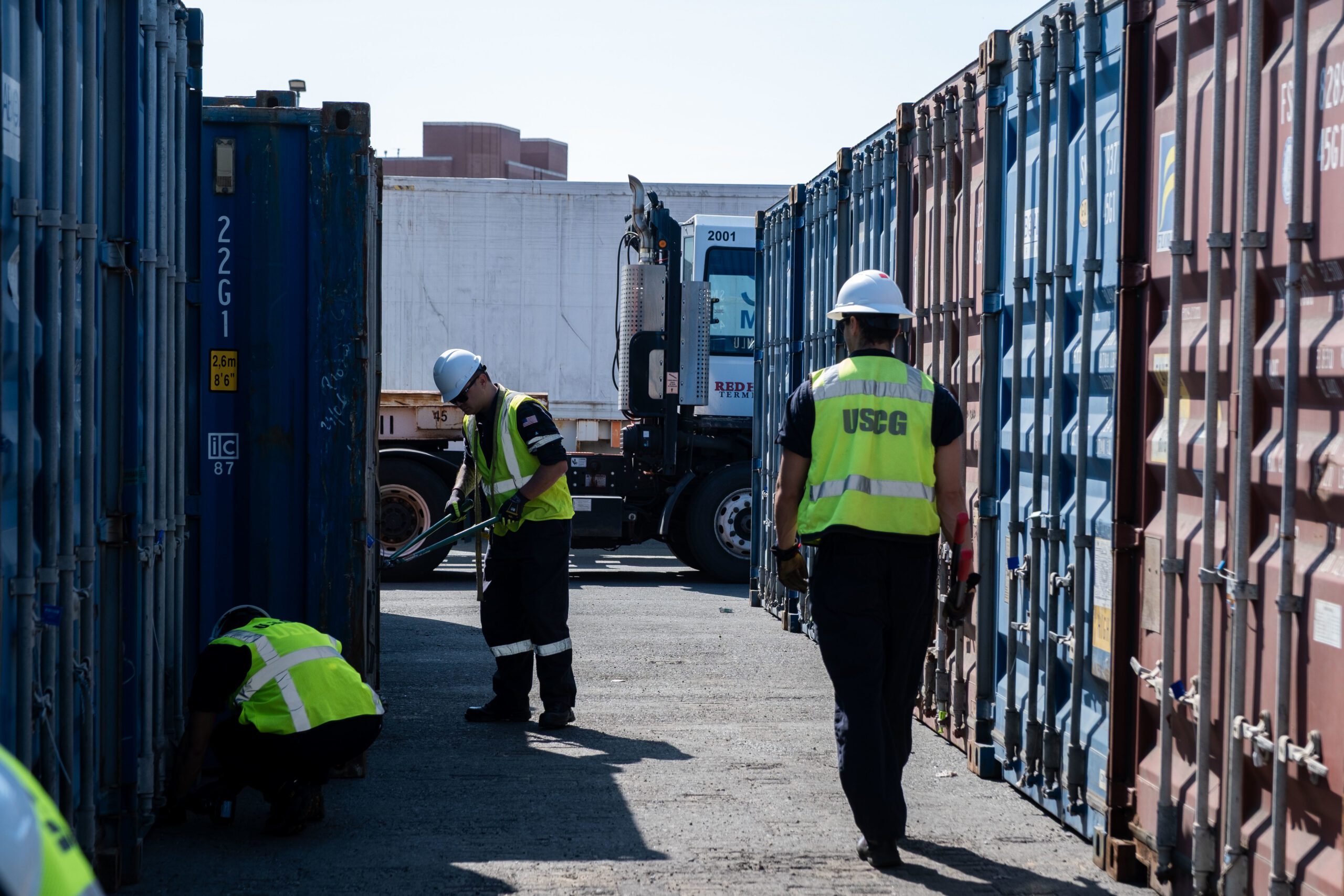A new bill introduced in the U.S. House of Representatives would repeal every anti-Jones Act decision by the U.S. Customers and Border Protection dating back to 1972. At least that’s how Congressman John Garamendi (D-CA) describes his “Close Agency Loopholes to the Jones Act,” which he introduced Wednesday.
The anti-Jones Act loopholes were made in the form of CBP letter rulings, which provide interpretive rulings for specific scenarios and “substantially identical transactions” on whether the Jones Act applies. The letter rulings can unintentionally set precedent, creating loopholes that allow the Jones Act to be circumvented. The letter rulings often dictate whether or not foreign vessels and crews can perform certain activities in the U.S. offshore oil and gas industry and, increasingly, in the development of offshore wind projects.
“For nearly 50 years, Congress has stood on the sidelines while federal regulators made bad decisions that erode crucial protections for the American worker. The U.S. government should do everything in its power to prevent foreign vessels from paying poverty wages to take jobs from Americans working in our maritime industry. Sadly, it has largely enabled it instead,” Rep. Garamendi says. “This stops today. My ‘Closing Agency Loopholes to the Jones Act’ would finally force federal regulators to enforce the law as Congress intended when it created the Jones Act in 1920. Passing my legislation means maximizing job opportunities for American mariners, U.S.-flagged vessels, and domestic shipyard workers.”
Specifically, the Close Agency Loopholes to the Jones Act would:
- Close the “oceanographic research vessel” loophole, thereby preventing commercial vessels engaging in seismic-blasting and similar pre-construction activities for offshore energy development in the United States’ Exclusive Economic Zone at sea from skirting the Jones Act.
- Close the “vessel equipment,” “lifting operations,” and “installation vessel” loopholes, thereby preventing vessels with cranes and similar equipment from moving building materials into place to construct offshore energy development in the United States’ Exclusive Economic Zone at sea from skirting the Jones Act.
- Close the “paid out, not unladen” loophole, thereby preventing vessels transporting and installing undersea cable between the mainland United States and fixed points like offshore platforms on the Outer Continental Shelf from skirting the Jones Act.
- Close the “decommissioning” loophole, thereby preventing vessels decommissioning offshore platforms on the Outer Continental Shelf from skirting the Jones Act.
- Close the “seabed sample” loophole, thereby preventing commercial vessels taking samples from the seafloor on the Outer Continental Shelf for offshore energy development from skirting the Jones Act.
- Close the “pristine seabed” loophole, thereby preventing commercial vessels that artificially place rocks or other aggregates by vessel—known as “scour protection material”—on the seafloor of the Outer Continental Shelf for offshore energy development from skirting the Jones Act.
- Allow Jones Act operators to appeal decisions—known as “letter rulings”—by U.S. Customs and Border Protection that undermine the Jones Act.
- Subjects Customs and Border Protection’s enforcement of the Jones Act to the Congressional Review Act, which applies to nearly all other major national policy and regulatory decisions at federal agencies.
- Requires foreign-flagged vessels operating on the outer Continental Shelf purporting to operate under a Jones Act exemption to publicly notify Customs and Border Protection’s citing the specific purported exemption and its legal basis.
- Authorizes Customs and Border Protection to penalize foreign-flagged vessels operating on the Outer Continental Shelf under a purported Jones Act exemption for failing to notify the federal agency.
“In January 2021, President Biden’s first executive order after assuming office directed federal agencies to maximize the use of American mariners, American-built ships, and U.S.-flagged vessels under the Jones Act. Less than 90 days later, Customs and Border Protection issued a letter ruling contradicting the President’s policy to allow foreign vessels to construct energy projects on the Outer Continental Shelf. My bill will force the bureaucrats at CPB to implement the President’s policy by fully enforcing the Jones Act,” adds Rep. Garamendi.
“Once again Congressman Garamendi has proven himself to be a champion for American mariners and shipyard workers,” says Aaron Smith of the Offshore Marine Service Association (OMSA). “For five decades, unelected bureaucrats in the U.S. Customs and Border Protection have rewritten the Jones Act in ways that hurt American mariners and ignore the intentions of Congressional authority. Big Oil, and increasingly Big Wind, have actively called for and exploited these loopholes to utilize cheap foreign mariners at the expense of hard working Americans. The result has been less opportunity for American mariners and shipyard workers and greater profit margins for foreign companies and foreign investors.”
The introduction of the Closing Agency Loopholes to the Jones Act comes after the new National Defense Authorization Act (NDAA) failed to include the American Offshore Worker Fairness Act (AOWFA), which Rep. Garamendi cosponsored. The latter bill “provides a level playing field between U.S. flagged vessels and foreign-flagged vessels working in offshore energy activities in U.S. waters,” according to U.S. Senator Bill Cassidy, M.D. (R-LA), who introduced the bill in the Senate.
“We applaud Congressman Garamendi for taking steps to reverse these wrongs, and call on his Congressional colleagues to join him in standing up for what is right. Together, with the American Offshore Worker Fairness Act, Congress can erase crewing cost disparities, accelerate exponential growth in the U.S. maritime industry, and increase national, homeland, and economic security,” adds Smith.
Editorial Standards · Corrections · About gCaptain

 Join The Club
Join The Club











